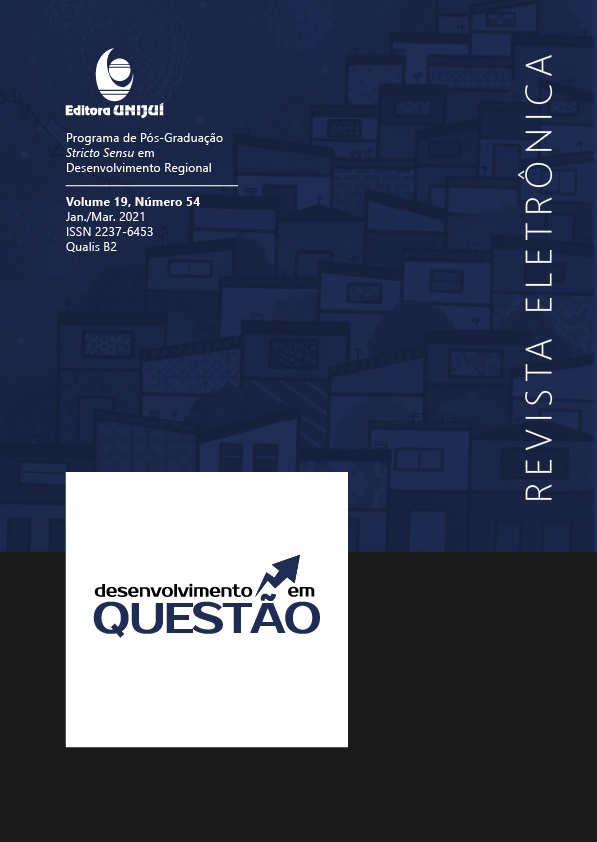O Direito Humano à Água e a Regulação do Saneamento Básico no Brasil: Tarifa Social e Acessibilidade Econômica
DOI :
https://doi.org/10.21527/2237-6453.2021.54.123-142Mots-clés :
Regulação, Saneamento, Tarifa SocialRésumé
O acesso à água potável e ao esgotamento sanitário é notoriamente reconhecido como uma condição essencial à proteção da saúde e à preservação da vida, tendo sido definido, por resolução da Organização das Nações Unidas (ONU), de 2010, como direito humano essencial. Essa essencialidade ganha contornos particularmente nítidos no atual contexto, marcado pela pandemia da Covid-19. Para a promoção de objetivos sociais e econômicos relacionados à provisão dos referidos serviços, o marco regulatório do setor de saneamento básico brasileiro introduziu a necessidade de instituição de agências independentes com a atribuição de disciplinar e fiscalizar as atividades das empresas atuantes na área. Dentre os diversos desafios postos à atividade reguladora ressalta-se a dificuldade de acesso, pela população de baixa renda, aos serviços setoriais. Um dos instrumentos usualmente empregados para oportunizar esse acesso é a denominada Tarifa Social. Nesse contexto, o artigo busca traçar uma visão panorâmica de sua utilização, em âmbito nacional, na prestação dos serviços setoriais, utilizando-se de dados do Sistema Nacional de Informações sobre Saneamento – SNIS. Verificou-se que o instrumento se faz presente na maior parte dos municípios, constatando-se, entretanto, grande heterogeneidade nos critérios adotados para sua concessão que, muitas vezes, se dissociam do principal objetivo de sua instituição.
Téléchargements
Publié-e
Comment citer
Numéro
Rubrique
Licence
Ao publicar na Revista Desenvolvimento em Questão, os autores concordam com os seguintes termos:
Os trabalhos seguem a licença Creative Commons Atribuição 4.0 Internacional (CC BY 4.0), que permite:
Compartilhar — copiar e redistribuir o material em qualquer meio ou formato;
Adaptar — remixar, transformar e criar a partir do material para qualquer fim, inclusive comercial.
Essas permissões são irrevogáveis, desde que respeitados os seguintes termos:
Atribuição — Atribuição — os autores devem ser devidamente creditados, com link para a licença e indicação de eventuais alterações realizadas.
Sem restrições adicionais — não podem ser aplicadas condições legais ou tecnológicas que restrinjam o uso permitido pela licença.
Avisos:
A licença não se aplica a elementos em domínio público ou cobertos por exceções legais.
A licença não garante todos os direitos necessários para usos específicos (ex.: direitos de imagem, privacidade ou morais).
A revista não se responsabiliza pelas opiniões expressas nos artigos, que são de exclusiva responsabilidade dos autores. O Editor, com o apoio do Comitê Editorial, reserva-se o direito de sugerir ou solicitar modificações quando necessário.
Somente serão aceitos artigos científicos originais, com resultados de pesquisas de interesse que não tenham sido publicados nem submetidos simultaneamente a outro periódico com o mesmo objetivo.
A menção a marcas comerciais ou produtos específicos destina-se apenas à identificação, sem qualquer vínculo promocional por parte dos autores ou da revista.
Contrato de Licença (para artigos publicados a partir de 2025): Os autores mantêm os direitos autorais sobre seu artigo, e concedem a Revista Desenvolvimento em Questão o direito de primeira publicação.











